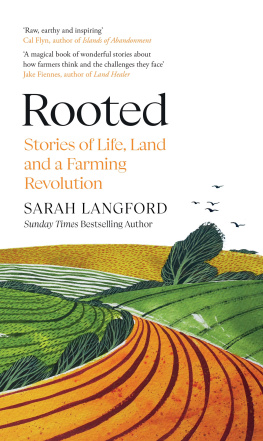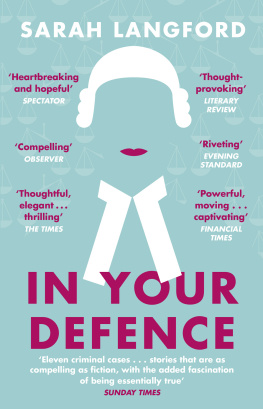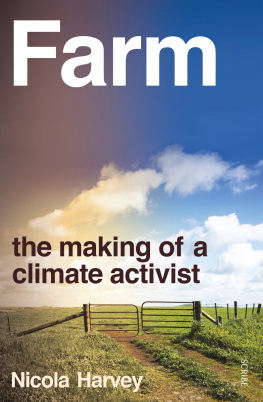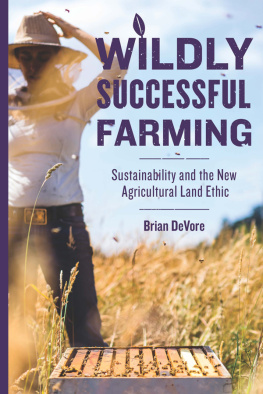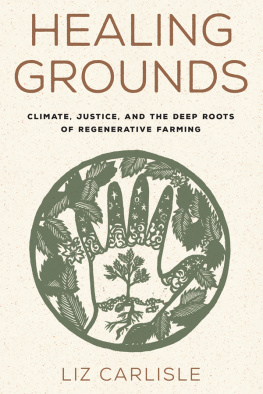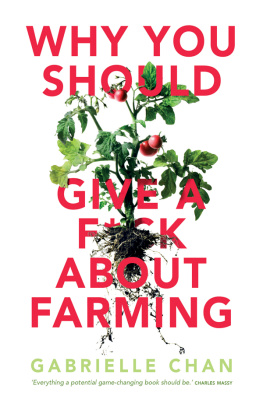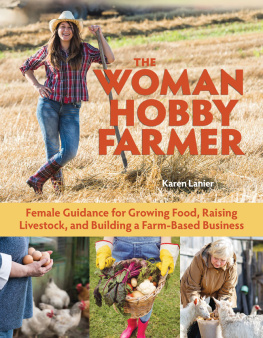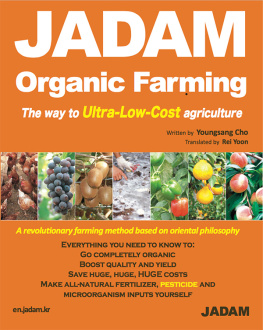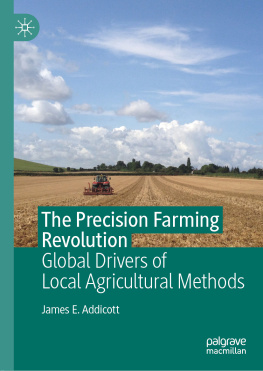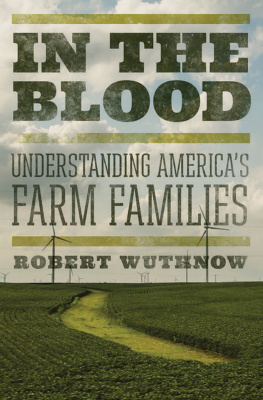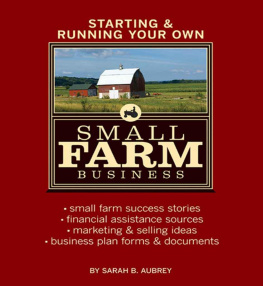Sarah Langford
ROOTED
Stories of Life, Land and a Farming Revolution

PENGUIN BOOKS
UK | USA | Canada | Ireland | Australia
New Zealand | India | South Africa
Penguin Books is part of the Penguin Random House group of companies whose addresses can be found at global.penguinrandomhouse.com.

First published by Viking in 2022
Copyright Sarah Langford, 2022
The moral right of the author has been asserted
Cover Illustration Jessamy Hawke
ISBN: 978-0-241-99183-1
This ebook is copyright material and must not be copied, reproduced, transferred, distributed, leased, licensed or publicly performed or used in any way except as specifically permitted in writing by the publishers, as allowed under the terms and conditions under which it was purchased or as strictly permitted by applicable copyright law. Any unauthorized distribution or use of this text may be a direct infringement of the authors and publishers rights and those responsible may be liable in law accordingly.
For all the cranks who caused a revolution.
And in memory of my grandparents, Peter and Dina Flindt.
For all you taught me, even if you never knew it.
Introduction
I go down to the shore in the morning
and depending on the hour the waves
are rolling in or moving out,
and I say, oh, I am miserable,
what shall
what should I do? And the sea says
in its lovely voice:
Excuse me, I have work to do.
Mary Oliver
This story happened by accident. I never expected, or wanted, to live a life on the land. But then fate took me there and taught me lessons I never knew I needed to learn.
Some people tell me that having farming in my family means it must be in my blood. Maybe they are right. This book is, in part, my journey to find out. First, I had to decide what being a farmer meant. To do that I had to find out what being a farmer used to mean, what it now means and what it will mean in the future. In doing so, I met others asking themselves the same questions. This book weaves their stories around mine. Some of those farmers like Tom, Rebecca and Stuart are still discovering the answers. Others like Ollie, Sam and George found them long ago. Like many of the farmers in this book, to find my future I had to go back to my past. So that story the story of my grandparents farm is the first that you will read.
As I made this journey, I came across a revolution: a way of farming that is both new and also very old, and which asks us to look at our history, our future and our values differently. It is a revolution that might just abate a climate crisis, a physical and mental health crisis, and a biodiversity crisis too. It could help to regenerate our land while also giving us some of the answers so many city dwellers seem to be looking for, not just about connection but about how to live. In doing so, it can teach us a different way of being.
I found myself in this world at the beginning of one of the greatest upheavals in farming for generations. Brexit has separated the United Kingdom from Europe, and so too from the Common Agricultural Payments that have supported food production for so long. Now these public subsidies are being withdrawn. One third of all UK farms make a loss without them. Farmers will now be granted public money for looking after land that many accuse them of wrecking, and not for growing the food they define themselves by. Food is no longer seen as a public good, but as a public given. This shift in mission is both huge and difficult, because farming is more than just a job. It is an identity. Everything about it must be seen through this prism. It is not just how farmers spend their days that is changing. It is who they are.
Because the devolved nations of the United Kingdom are planning their futures slightly differently, I have focused on English farmers in this book, although farmers all over the world are facing the same battles mental, financial and environmental that lie within these stories. The change in government policy has made English farmers a test case: how we define farming now may alter the way others come to see it around the globe.
Some of the farmers in this book do not want a part in public life save for their stories to be better understood, so I have changed their names and identifying details to protect their anonymity. However, the people in this book are real and so are their stories, their views, their experiences, their heartbreaks and their joys. I use each farmers exact words where I am able, and what I know of them, their lives, their expressions and opinions to narrate the rest where I am not.
It is important to be clear that this book is not an anthology of farming. It cannot be. Every farmer will do something different from their neighbour. But while their methods and produce may change, the themes that run throughout their lives and their farms are often the same. This journey has taken me around the country speaking to farmers from every walk of life who are farming in many different ways, on varying soils and on land with diverse histories. They have trusted me with their diaries, old correspondence, home movies and photographs. They have confided moments of pain and joy. More than one has cried at the relief of unburdening themselves. I have learned a lot from every one of them.
But this journey has meant more than the gathering of knowledge. It has involved an understanding, not just of the world around me although it certainly taught me to look at things differently but also of myself. I had placed a learned emphasis on certain things and on certain people. I ended up in the countryside seeking a break from reality. Instead, I ended up finding it.
You have to take a view that everything happens for a reason.
You wouldnt be doing what youre
doing now if that hadnt happened.
Rebecca, farmer

1. The Beginning Butter and Honey and Dust
It is the smell that makes me think of him: butter and honey and dust. It comes from the meadow field, which is separated from our cottage garden by a wooden fence. I lean against the fence and inhale. In a few weeks time these meadow grasses will be cut. They will be bundled into great cylinders, each one rolling out of the red and rusty baler. I will shout to my two young sons to come and see its cleverness. Wilfred, nearly three years old, will run barefoot, whippet fast, and behind him my husband, Ben, will carry our ten-month-old baby. Together we will line up against the fence and watch. Each time the machine stops, quivers, and births a bale we cheer.
Now, though, on this evening in the east of England, the scent of the uncut hay hangs in the air. Behind me, inside the cottage we have just moved into, are bags and boxes waiting to be unpacked. We have only brought essentials with us. We dont plan on being here long. But I dont want to go inside. I want to be here on the edge of a meadow, wondering about this new life we are about to make, which looks and feels so very different from the one we have just left.
Wilfred climbs up the broken gate in the middle of the fence and sits on it, his legs either side of the top bar. His brother pulls himself up on the lower rung, grizzling because he is still too small to do the same. They are clean and pink from their bath. I look at them and try to remember how it feels to be that small, with bare feet and limbs and nostrils filled with the scent of butter and honey and dust.

